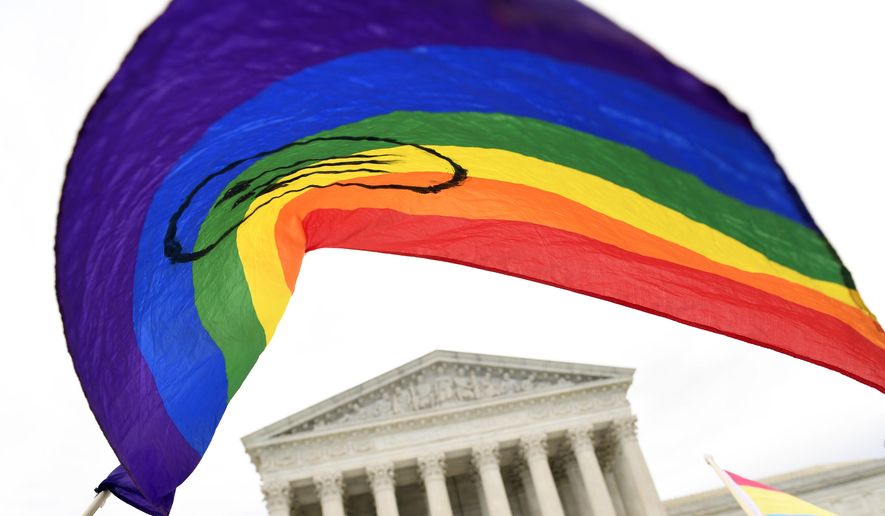School guidance counselor Shelly Fitzgerald isn’t giving up her court battle against a Roman Catholic high school in Indiana that fired her after learning she was in a same-sex marriage.
Ms. Fitzgerald has appealed the dismissal of her lawsuit by a federal judge, declaring that “employers are not above the law” even if they claim religious exemptions.
Americans United for Separation of Church and State, whose attorneys represent Ms. Fitzgerald, said she was “beloved and trusted” in her job for 14 years and received near-perfect performance reviews. But after church officials learned she married her same-sex partner of 25 years, she was placed on administrative leave and banned from campus, and her contract was not renewed.
In September, Judge Richard Young of Indiana’s Southern District ruled Ms. Fitzgerald had no basis to sue. Roncalli High School and the Archdiocese of Indianapolis enjoyed a “ministerial exception” for employing a guidance counselor who was expected to transmit and model Catholic doctrine, the judge ruled.
A string of Supreme Court decisions beginning with 2012’s Hosanna-Tabor Evangelical Lutheran Church and School v. Equal Employment Opportunity Commission has said religious organizations can define positions other than ordained clergy as “ministerial” and thus exempt from various employment discrimination laws.
Ms. Fitzgerald’s attorneys said Judge Young “disregarded Fitzgerald’s abundant record evidence that she never performed religious duties, that Roncalli never told her to incorporate religion into her work, and that neither Roncalli nor the students or their families ever expected her to provide religious guidance.”
The appeal notes that Ms. Fitzgerald had signed employment agreements acknowledging the “ministerial” nature of the job. It called the agreement “a few rote statements in documents that employees may never have read or even seen” and that such “boilerplate employment documents do not and cannot decide the ministerial exception question.”
Rachel Laser, president and CEO of Americans United, said Ms. Fitzgerald “was not a minister when she was fired for being married to the woman she’s loved for more than 25 years. … We urge the court to affirm that Catholic schools and other religious employers are not above civil-rights laws.”
Last July, a three-judge panel of the 7th U.S. Circuit Court of Appeals ruled against Lynn Starkey, a guidance office colleague of Ms. Fitzgerald’s at Roncalli, who appealed a similar 2021 ruling also decided by Judge Young, who was named to the federal bench by President Bill Clinton.
In that case, the appellate judges ruled Ms. Starkey “was a minister because she was entrusted with communicating the Catholic faith to the school’s students and guiding the school’s religious mission. The ministerial exception bars all her claims, federal and state.”
Luke Goodrich, vice president and senior counsel at the Becket Fund, a religious freedom public interest law firm, noted that the earlier appeals court decision involved “the same leadership role at the same school.”
“We anticipate another ruling affirming this core constitutional right and ensuring that the Archdiocese can continue providing an authentic Catholic education rooted in the dignity of every human person,” he said.
• Mark A. Kellner can be reached at mkellner@washingtontimes.com.




Please read our comment policy before commenting.